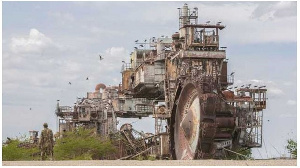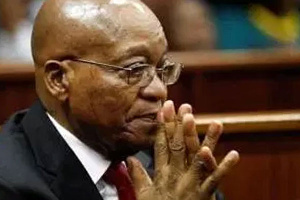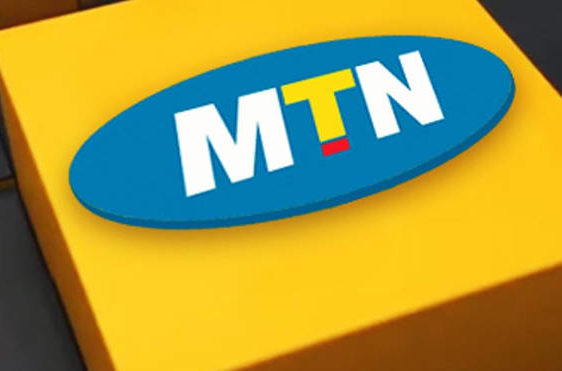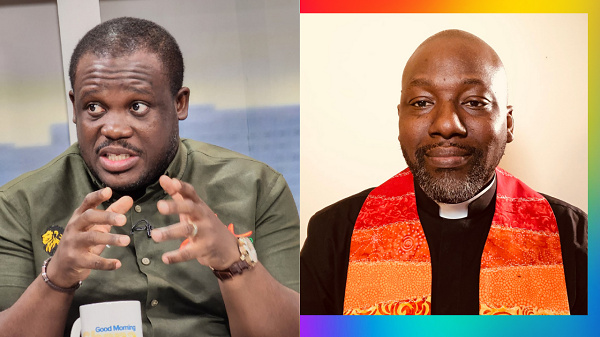24 reasons that explain Tinubu’s victory
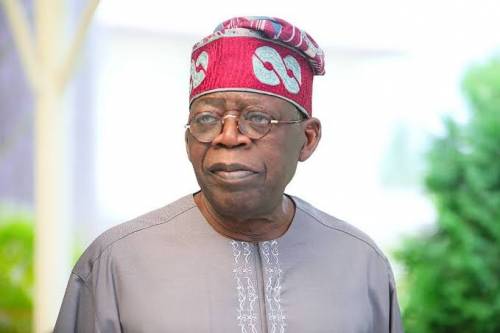
(2). Despite its dismemberment, the new units in the PDP were abusing themselves up to the election proper and hardly focused on any meaningful campaign other than state capital-based rallies, where Dino Melaye will abuse Tinubu and then they’ll disperse.
(3). Atiku was more concerned about hiring talkatives as his spokesmen, rather than talkers. While talkatives can talk from now until next year, making no impact and sense, talkers are exactly the opposite, because they deliver messages as and when due, and achieve the purpose.
(4). Atiku relied too heavily on Delta State Governor, Dr. Ifeanyi Okowa. Funding from Delta was unfortunately not enough for a presidential election, considering that Okowa also had a battle of his life to fight back home.
(5). Atiku arrogantly believes he could still be President, faced with an outgoing Hausa/Fulani President, and also condescending in his thinking that it is only through him that a South-easterner can be president. Who is he? What is he?
(6). While the PDP campaign concentrated more on the personality of Asiwaju, APC was more concerned about selling their party and their promises, rather than the personalities of their opponent’s parties.
(7). Labour Party could not have won the election too because Peter Obi was only popular amongst the Christian population of the country. He was hardly known in the core North of West and East. How can you become president of Nigeria, without winning votes in those two regions?
Open Letter
(8). The question about winning Abuja that Labour Party (LP) is canvassing is just nonsense. They simply see it as a straw to hold on to, because they won it. Abuja is like every other state, nothing special, nothing sacrosanct about it. There is nowhere in the world where we have that kind of law.
(9). Labour Party was never serious about this election. They were only waiting to lose it and then head to court. Otherwise, why would they not be concerned about hiring party agents, mobilising them and about the polling unit results meant to emanate from the agents?
(10). Much as Peter Obi tried, his supporters didn’t. They were very abusive and insulting and cursing. Obi’s efforts might be rewarding in another four of eight years, but not now, otherwise why did he not pick more than one state in the governorship if he was that popular to win a presidential election?
(11). In this election, I saw no reports in the media of thugs snatching ballot boxes and stuffing them. I saw no reports of security agents cordoning off whole polling stations while ballot boxes were being stuffed. There was no story of soldiers scattering voters in any place.
(12). Where is the mother of all rigging, when Supreme Court ruled in 1983 that UPN’s Bisi Onabanjo got 1.2million votes, NPN’s Akin Omoboriowo got 500,000 votes but the returning officer added 1 behind the figure and it became N1.5million?
(13). This year, the President did not declare the election a do-or-die. I saw no story of armed hooded security agents descending on a state, as in Ekiti in 2014. There was no story of an opposition governor’s plane denied landing rights at any airport.
(14). In 2023, we didn’t have a Police Commissioner (Mbu) denying an opposition party governor entry into his own Government House. Pray, where in Nigeria in 2023 did we have Police Commissioner (Tahir Jidda) denying Dr. Nnamdi Azikiwe entry into Maiduguri and firing tear gas at Zik, even though Borno State Governor Muhammadu Goni stood beside him?
(15). Even the party primaries of last year lacked drama because we saw nothing like the Babalawo who tried to enter the UPN state congress in Ibadan in 1983 with a live tortoise strapped to his waist.
(16). The general African attitude to elections is that the outcome justifies the process. The credible outcome, in African eyes, is usually when the incumbent ruler or party is defeated. Hence, to most Africans, the best elections ever held in Africa were when Morgan Tsvangirai’s party defeated Robert Mugabe’s; when Adama Barrow defeated Yahaya Jammeh in Gambia; when Mohammed Morsi triumphed in Egypt against Hosni Mubarak’s premier; when Jerry Rawlings’ party was defeated in Ghana; when Macky Sall defeated Abdoulaye Wade in Senegal; when Wade himself earlier defeated Abdou Diouf; when Alassane Ouattara defeated Laurent Gbagbo in Ivory Coast; and more recently, when William Ruto triumphed in Kenya despite outgoing President Uhuru Kenyatta’s support for Raila Odinga.
(17). African style, let us walk backwards from the result to the credibility question. First, the voter turnout. There were 87 million voters with PVCs in the 2023 election but only 24 million voted, or 27%. Now, the starting point of rigging elections is to take advantage of the number of registered voters. Why leave 63 million blank names on the register if you really desire to rig up results?
(18). Undoubtedly, the technological innovations adopted over the years greatly helped clean up our elections. Up until 2007, those absent voters will simply have their votes cast for them by a coalition of party agents, election officials and security officers.
(19). The winner of this election, Asiwaju Bola Tinubu, got only 37% of the vote, down from the 56% that Buhari got in 2019. Now, while 2019 was a two-horse race between the APC and PDP candidates, 2023 was at least a four-horse race between APC, PDP, LP and NNPP candidates. It was the first time since 2007 that we had more than two major candidates in a presidential election and the first time since 1983 that we had up to four major candidates in such a race. The top four candidates in this election got 37%, 29%, 25% and 6% respectively. This compares closely with 1979 when Shagari got 34%, Awo got 29%, Zik got 16%, Aminu Kano got 10.28 and Waziri Ibrahim got 10%. The top three runners-up in this race got a combined 60% of the vote. That is impressive, but then, they only have themselves to blame that they did not present a united front before the election.
(20). They only tried to present a united front to contest the results. It is a case of locking the stables after the horses have bolted. Would they have made 60% of the vote if they had united behind a single candidate? Nobody will ever know the answer for certain.
(21). Tinubu’s party went into this election controlling the Federal and 21 state governments. In the event, he won only 12 states outright. PDP’s Atiku Abubakar also won 12 states, LP’s Peter Obi won 12 states outright [FCT included] while NNPP’s Kwankwaso won outright in one state. So how did Tinubu win the race? Simple. The number of states that a candidate wins outright is important. Equally important is the number of states in which he came second. Also very important is, if he came second with only a narrow margin in most of them. Tinubu won 12 states outright [Zamfara, Jigawa, Borno, Niger, Kwara, Kogi, Benue, Ekiti, Oyo, Ogun, Ondo and Rivers]. He came second in 19 states (Kebbi, Sokoto, Kaduna, Katsina, Kano, Gombe, Bauchi, Yobe, Taraba, Nasarawa, Plateau, Adamawa, Osun, Lagos, Cross River, Akwa Ibom, Edo, Imo and Ebonyi). In many cases the margins of loss were very small, with only 3,000 votes in Sokoto, 12,000 in Katsina and equally narrow margins in Osun and Lagos. Very important, Tinubu came second to Kwankwaso in Kano, second to Atiku in most of the states the latter won and second to Obi in Lagos, Ebonyi, Imo and Edo.
(22). This was exactly how Alhaji Shehu Shagari won the presidency in 1979. He won outright in nine states out of 19 (Sokoto, Kaduna, Niger, Bauchi, Gongola, Benue, Kwara, Rivers and Cross River). He won in Kaduna and Gongola even though his party lost the governorship elections there two weeks earlier, what in those days was called “the bandwagon effect.” Of the remaining ten states in Nigeria at the time, Shagari came second in 9 (Oyo, Ogun, Ondo, Bendel, Anambra, Imo, Borno, Plateau and Kano). Shagari came third only in Lagos, after Awo and Zik. Like Shagari, like Tinubu; you are victorious if your party is either first or second in almost every state.
(23). Allegations that APC rigged the election also fall flat because it lost the biggest states, namely Lagos, Kaduna, Kano and Katsina, even though all of them have APC state governors, all of whom are staunchly loyal to Tinubu. In terms of vote banks, what is Imo, Edo or Adamawa to these states? Why should anyone go rigging elections in some small states when he could rig up figures in the biggest ones and win by a large margin?
(24). If they could help it, why should ten APC governors, APC National Chairman and Director General of the APC campaign suffer the embarrassment of failing to deliver their states? Why should Tinubu himself suffer the embarrassment of failing to win outright in Lagos, long alleged to be his political fiefdom?
Source: thenationonlineng.net

